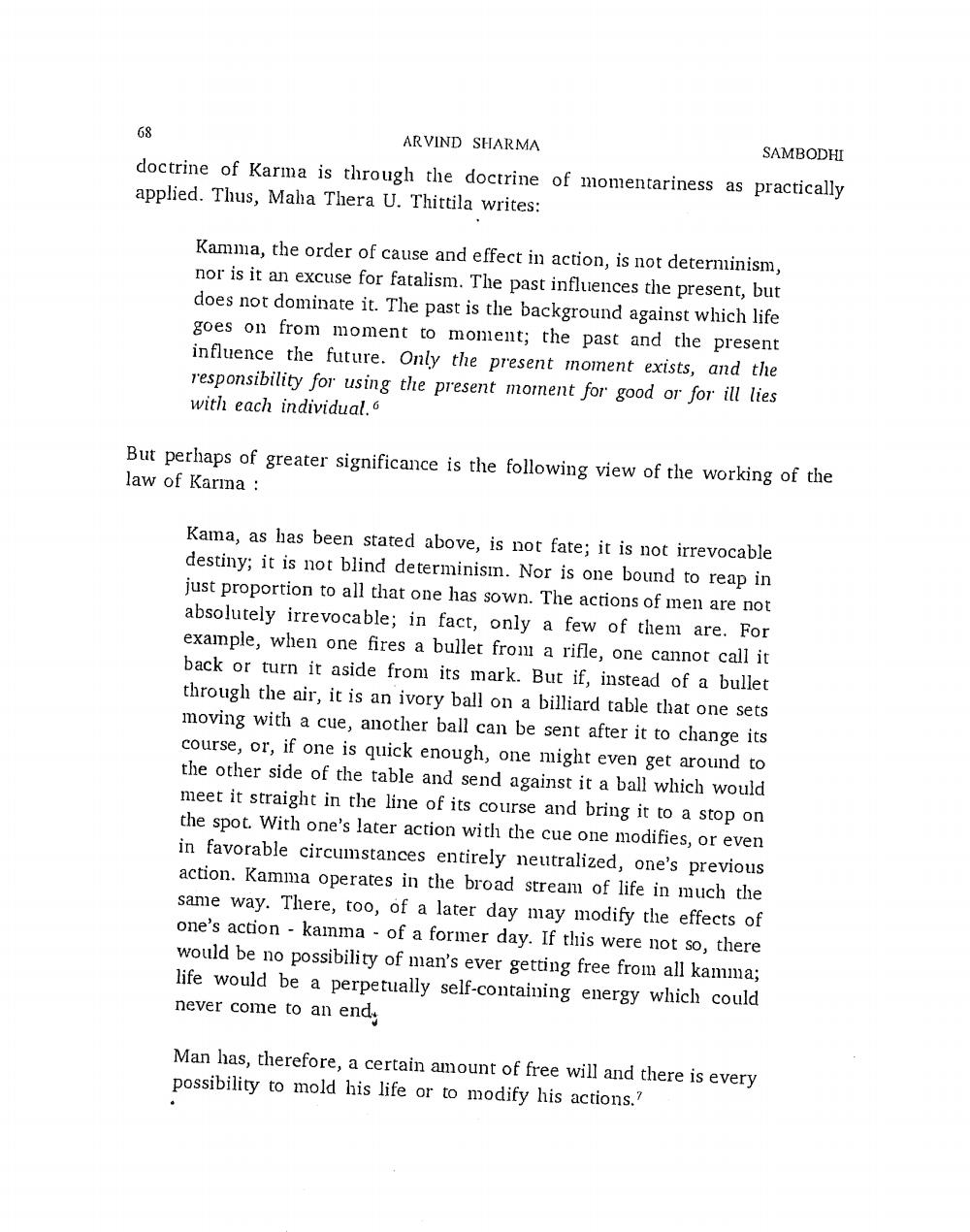________________
68 ARVIND SHARMA
SAMBODHI doctrine of Karma is through the doctrine of momentariness as practically applied. Thus, Maha Thera U. Thittila writes:
Kamma, the order of cause and effect in action, is not determinism, nor is it an excuse for fatalism. The past influences the present, but does not dominate it. The past is the background against which life goes on from moment to moment; the past and the present influence the future. Only the present moment exists, and the responsibility for using the present moment for good or for ill lies with each individual.
But perhaps of greater significance is the following view of the working of the law of Karina :
Kama, as has been stated above, is not fate; it is not irrevocable destiny; it is not blind determinisın. Nor is one bound to reap in just proportion to all that one has sown. The actions of men are not absolutely irrevocable; in fact, only a few of them are. For example, when one fires a bullet from a rifle, one cannot call it back or turn it aside from its mark. But if, instead of a bullet through the air, it is an ivory ball on a billiard table that one sets moving with a cue, another ball can be sent after it to change its course, or, if one is quick enough, one might even get around to the other side of the table and send against it a ball which would meet it straight in the line of its course and bring it to a stop on the spot. With one's later action with the cue one modifies, or even in favorable circumstances entirely neutralized, one's previous action. Kamma operates in the broad stream of life in much the same way. There, too, of a later day may modify the effects of one's action - kaima - of a former day. If this were not so, there would be no possibility of man's ever getting free from all kamma; life would be a perpetually self-containing energy which could never come to an end,
Man has, therefore, a certain amount of free will and there is every possibility to mold his life or to modify his actions.?




